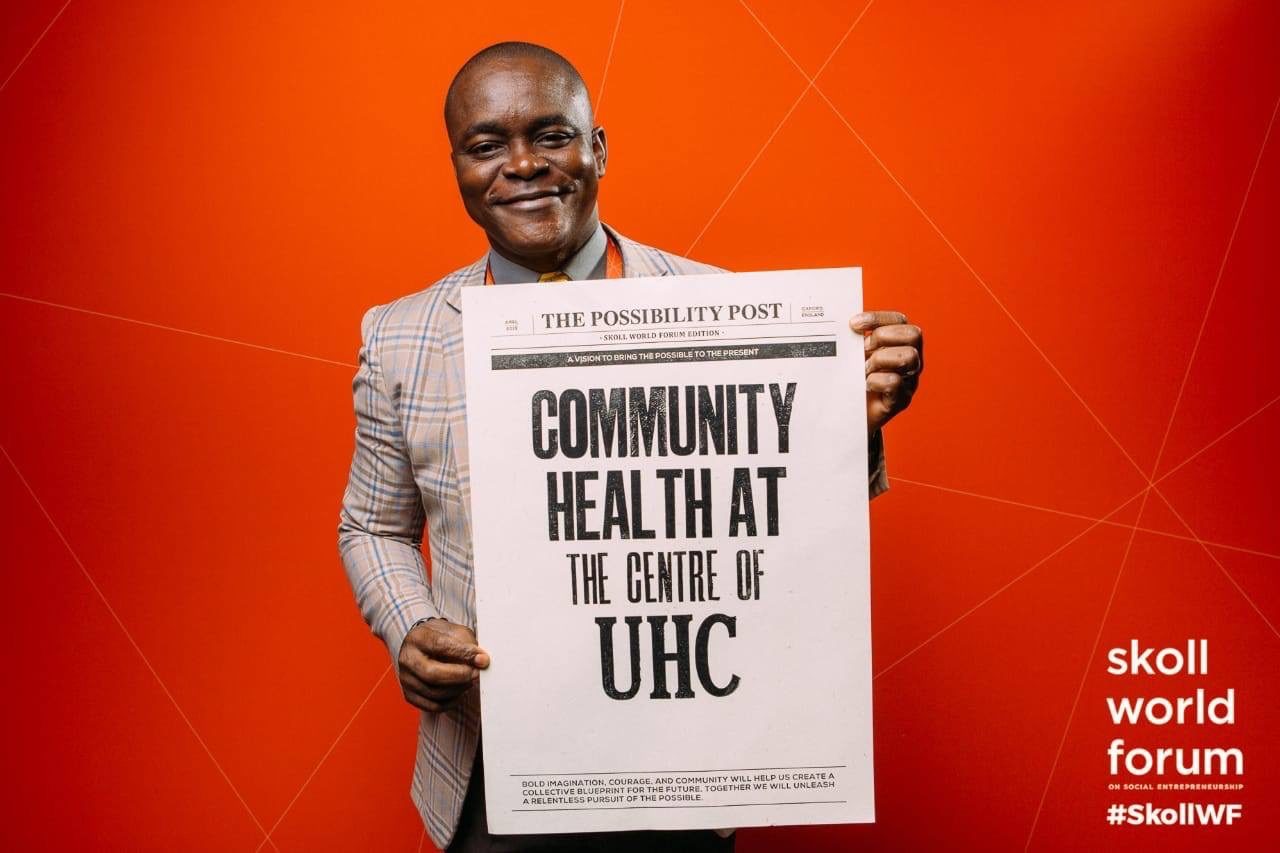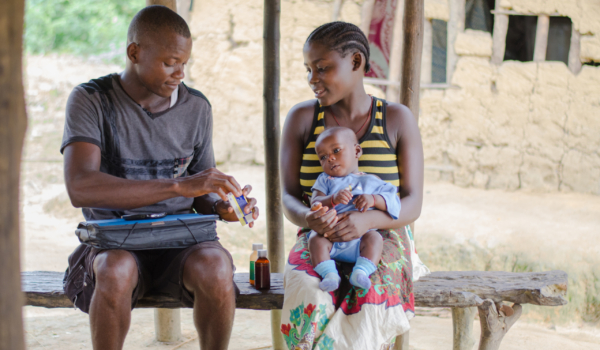S. Olasford Wiah has never forgotten the story of one patient he met in River Gee, Liberia, when he was serving as HIV Focal Person in the county. The patient was a pregnant woman living with HIV, and she tragically died in childbirth while trying to make the long journey by foot from her community to reach the nearest health center. He said, “I strongly believe that [she] would not have died if only there were community health workers in those remote communities.” Patients like this have underscored the urgent need for access to healthcare in remote communities for Wiah – which sparked a life-long commitment.
Now, Wiah serves as the Director for Community Health Services Division at the Liberia Ministry of Health and is at the forefront of the transformation of Liberia’s health system. A trained Physician’s Assistant, Wiah has served in many capacities in Liberia’s healthcare system, including both clinical and public health roles. As Director, Wiah provides oversight of the National Community Health Assistant Program and ensures consistent implementation across Liberia’s 15 counties, while working to integrate community health programming into Liberia’s wider health system so no patient living in remote communities is left behind.
A fierce advocate for the role of community health workers in advancing universal health coverage, Wiah recently joined leaders from the social, public, and private sectors on a global stage at the Skoll World Forum hosted by the Skoll Foundation. During a panel discussion on scaling health solutions through government partnerships, Wiah highlighted how the National Community Health Assistant Program serves as an example of what’s possible when governments invest in national networks of community health workers to advance universal health coverage, and the centrality of strong partnership to the success of the program. Last Mile Health Chief Operating Officer, Lisha McCormick, joined Wiah on the panel, and they shared the story of Last Mile Health’s partnership with the Ministry of Health, and underscored the importance of sharing a common agenda for advancing access to care for the hardest-to-reach communities. When asked to share advice to social entrepreneurs in the audience partnering with government, Wiah said, “You come with your idea. I share my priorities. We integrate the two. And together we achieve stronger results.” McCormick reflected on what Last Mile Health learned from partnering with the Government of Liberia, saying, “True partnership isn’t a model that’s passed off like a baton. Rather it’s something you co-create, with mutual respect.” Wiah also joined Last Mile Health CEO, Raj Panjabi, on a panel hosted by Co-Impact, which is supporting us, the Government of Liberia, and the Global Fund to fully scale and sustain the National Community Health Assistant Program. Wiah shared lessons on working with government, including the need to partner on long-term strategies that have the potential to make a real impact of the lives of the most vulnerable. Last Mile Health is grateful for Wiah’s leadership and partnership to advance a shared vision of a health worker for every Liberian.





